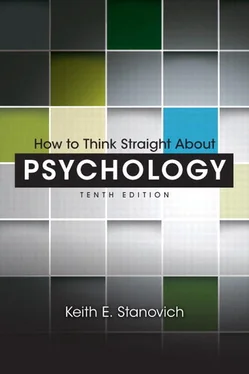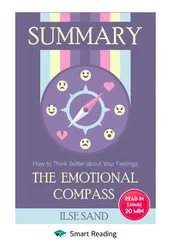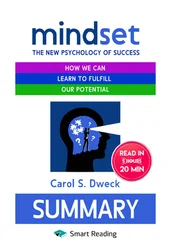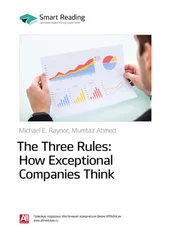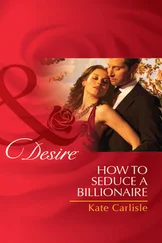Folk wisdom often contains a lot of wishful thinking: People want to believe that the world is the way they wish it to be rather than the way it is. Science often has the unenviable task of having to tell the public that the nature of the world is somewhat different from how they wish it to be (“No, that fast-food lunch is not good for your health”). The media, which could help in this situation (by telling people what is true rather than what they want to hear), only make it worse with their focus on what will “entertain” rather than on what will inform.
Science, then, does rule out the special-knowledge claims of those proposing statements that do not meet the necessary tests. The courts rule out claims of special knowledge too. In ruling on a famous case known as Daubert vs. Merrell Dow , the Supreme Court established when expert testimony could be presented in court—that is, what makes expert testimony expert! The Court identified four factors that judges should consider when deliberating about whether to allow expert testimony: (a) the “testability” of the theoretical basis for the opinion; (b) the error rates associated with the approach, if known; (c) whether the technique or approach on which the opinion is based has been subjected to peer review; and (d) whether the technique or approach is generally accepted in the relevant scientific community (Emery et al., 2005; Michaels, 2008). The four criteria map into major topics in this book: (a) falsifiability; (b) probabilistic prediction; (c) public knowledge subjected to peer review; and (d) scientific knowledge based on convergence and consensus. The courts are like science in ruling out claims of special knowledge, intuition, and testimonials as adequate evidence.
In this book, we have briefly touched on what are considered adequate and inadequate tests in science. Introspection, personal experience, and testimonials are all considered inadequate tests of claims about the nature of human behavior. Thus, it should not be surprising that conflict arises because these are precisely the types of evidence that nonpsychologist commentators have been using to support their statements about human behavior since long before a discipline of psychology existed.
However, it should not be thought that I am recommending a sour, spoilsport role for the science of psychology. Quite the contrary. The actual findings of legitimate psychology are vastly more interesting and exciting than the repetitious gee-whiz pseudoscience of the media. Furthermore, it should not be thought that scientists are against fantasy and imagination. However, we want fancy and fantasy when we go to the movies or the theater—not when we go to the doctor’s office, buy insurance, register our children for child care, fly in an airplane, or have our car serviced. We could add to this list going to a psychotherapist, having our learning-disabled child tested by a school psychologist, or taking a friend to suicide-prevention counseling at the university psychology clinic. Psychology, like other sciences, must remove fantasy, unfounded opinion, “common sense,” commercial advertising claims, the advice of gurus, testimonials, and wishful thinking from its search for the truth.
It is difficult for a science to have to tell parts of society that their thoughts and opinions are needed—but not here. Psychology is the latest of the sciences to be in this delicate position. The difference in time period for psychology, however, is relevant. Most sciences came of age during periods of elite control of the structures of society, when the opinion of the ordinary person made no difference. Psychology, on the other hand, is emerging in a media age of democracy and ignores public opinion at its own peril. Many psychologists are now taking greater pains to remedy the discipline’s lamentable record in public communication. As more psychologists take on a public communication role, the conflicts with those who confuse a personal psychology with scientific psychology are bound to increase.
Not everyone is a physicist, even though we all hold intuitive physical theories. But in giving up the claim that our personal physical theories must usurp scientific physics, we make way for a true science of the physical universe whose theories, because science is public, will be available to us all. Likewise, everyone is not a psychologist. But the facts and theories uncovered by the science of psychology are available to be put to practical ends and to enrich the understanding of all of us.
We are now at the end of our sketch of how to think straight about psychology. It is a rough sketch, but it can be of considerable help in comprehending how the discipline of psychology works and in evaluating new psychological claims. Our sketch has revealed the following:
1.Psychology progresses by investigating solvable empirical problems. This progress is uneven because psychology is composed of many different subareas, and the problems in some areas are more difficult than in others.
2.Psychologists propose falsifiable theories to explain the findings that they uncover.
3.The concepts in the theories are operationally defined, and these definitions evolve as evidence accumulates.
4.These theories are tested by means of systematic empiricism, and the data obtained are in the public domain, in the sense that they are presented in a manner that allows replication and criticism by other scientists.
5.The data and theories of psychologists are in the public domain only after publication in peer-reviewed scientific journals.
6.What makes empiricism systematic is that it strives for the logic of control and manipulation that characterizes a true experiment.
7.Psychologists use many different methods to arrive at their conclusions, and the strengths and weaknesses of these methods vary.
8.The behavioral principles that are eventually uncovered are almost always probabilistic relationships.
9.Most often, knowledge is acquired only after a slow accumulation of data from many experiments each containing flaws but nonetheless converging on a common conclusion.
The most exciting endeavor in science today is the quest to understand the nature of human behavior. By learning the concepts in this book you become able to follow this quest and perhaps, indeed, become a part of it.
Abrami, P., Bernard, R., Borokhovski, E., Wade, A., Surkes, M., Tamim, R., & Zhang, D. (2008). Instructional interventions affecting critical thinking skills and dispositions: A stage 1 meta-analysis. Review of Educational Research, 78, 1102–1134.
Adler, D. (2009). Snap judgment. New York: Financial Times Press.
Adler, J. (2006, November 6). Plotting Pluto’s comeback. Newsweek, pp. 60–61.
American Psychiatric Association. (2000). Diagnostic and statistical manual of mental disorders (4th ed.; Text Revision). Washington, DC: Author.
Anderson, C. A., & Anderson, K. B. (1996). Violent crime rate studies in philosophical context: A destructive testing approach to heat and Southern culture of violence effects. Journal of Personality and Social Psychology, 70, 740–756.
Anderson, C. A., & Huesmann, L. R. (2005). The evidence that media violence stimulates aggression in young viewers remains ‘unequivocal.’ APS Observer, 18(10), 7.
Angell, M., & Kassirer, J. P. (1998). Alternative medicine: The risks of untested and unregulated remedies. The New England Journal of Medicine, 339(12), 839–841.
Angier, N. (2007). The canon: A whirligig tour of the beautiful basics of science. New York: Mariner Books.
Читать дальше
